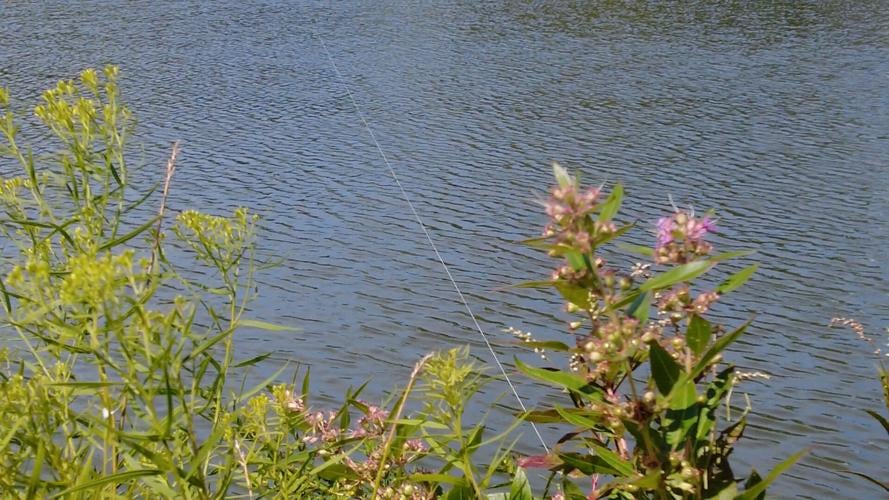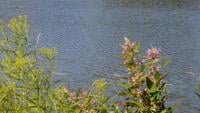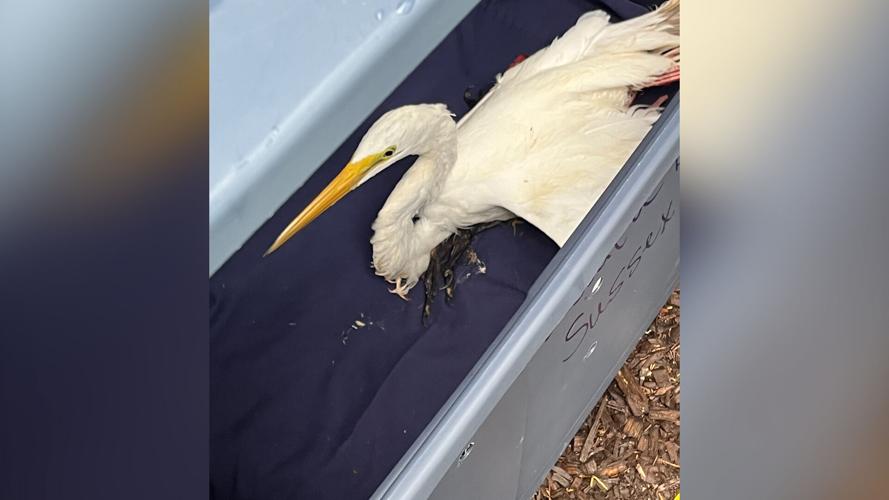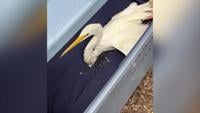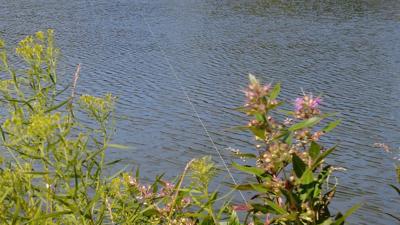REHOBOTH BEACH, Del.- A monofilament line system, designed to deter geese at a pond in a local community is under scrutiny following the death of a Great Egret. Some residents believe the wire may have played a role in the bird's death.
The lines were implemented by the Spring Lake Homeowners Association in response to issues with geese and their droppings, which were posing health hazards in the community according to the HOA. The association had been advised to install the system to address these concerns by the communities lake management team.
Residents, however, are questioning the effectiveness and safety of the line system. Kurt Wibbens who lives next to the pond expressed his concerns, calling the lines "barbaric" and alleging that it has damaged a previously thriving environment. Wibbens criticized the lack of communication about the installation, noting that residents were not given the opportunity to explore alternative goose deterrent methods.

Wibbons believes this bird died as a result of the wire system on the pond. (Photo: Kurt Wibbons)
"We were never informed of this," Wibbens said. "None of us had the chance to research alternate methods of deterrence. We have since done that and there are different ways of approaching it besides this."
The lake management company responded to the incident, stating that birds can die from various causes such as fish hooks, disease and parasites. They remarked, "It's odd that only one bird out of hundreds that use the pond daily was harmed."
In response to the criticism, Todd Fritchman, an aquatic biologist and environmental professional who manages the lake, defended the system. He emphasized that the grid is supported by research and is intended to be harmless to migratory birds. However, Fritchman acknowledged that the lines could potentially cause problems if it is cut or sabotaged.
Wibbens said to his knowledge, the wire system is expected to remain in place for a minimum of two years, with approximately six months having passed since its installation.
Wibbens also noted that some community members are in discussions with DNREC Fish and Wildlife and PETA regarding the lines system's impact on wildlife.






